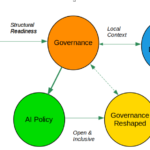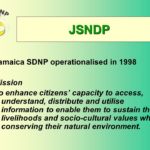It seems the Saudi’s are pretty active when it comes to ICTs. We have already provided inputs and support to the upcoming Global Crowdsourcing Fund (http://blog.raulza.me/?p=2059) and the more recent draft national FOSS policy (http://blog.raulza.me/?p=2104http://blog.raulza.me/?p=2104). Now we have an interesting proposal for creation a national cloud system. The proposal is here: Saudi Cloud Computing Project.
The Country Office asked me for my inputs which I promptly shared. Here they are:
I have recently shared with KACST my comments and edits on the proposal for a Saudi FOSS policy. I think we should connect these two initiatives. Anyways, my comments below will focus more on the policy angle and are not operational in nature.
1. Cloud computing is becoming a big business nowadays. As with many new businesses, this is still mostly in the hands of developed countries. But this is now starting to change thanks to the “Raise of the South” as our latest HDR says.
2. For many governments in developing countries (and a few NCCs), the need to use cloud computing is self-evident. The issue is not IF or WHY it should be used but rather HOW to harness it. From a public perspective framed in the context of a national state, the issue relates to the ownership of the cloud and its governance. For obvious reasons governments are reluctant to use the large commercial cloud computing services as there is no 100% guarantee that their national security, classified, confidential and personal information is safe from the prying eyes of third parties who might get access to it on the grounds of global security for example.
3. By the same token, some developing countries (both governments and stakeholders) are not keen in publishing public information (not personal like Facebook for example) in cloud systems that are subject to the laws and legislation of foreign countries. The issue here is, as pointed by a recent study, that foreign users of private cloud services do not have the same legal rights as those users who happen to be from the home country of the cloud company. A good example here is Gmail which stored messages from millions of people, message that can be then submitted to government upon request (as mandated by law) without foreign users having any rights to fight this in any court.
4. For these reasons, cloud computing for public sector information is a need that countries should be addressing sooner than later. And this initiative by the Kingdom is thus perfectly timed.
5. As mentioned before, I provided some inputs into the draft FOSS policy. The policy also makes a call for supporting Open Standards which in turn will foster interoperability and allows developers of applications to contribute more effectively and without having to be tied up on one single platform. Well, the same goes for cloud computing. I will suggest KSA considers using open cloud standards not only to be in sync with the FOSS policy but also to avoid vendor lock-in and at the same time foster local innovation by local entrepreneurs, academics and stakeholders in general. Please see for example: http://occi-wg.org/ which is a bit technical but I am sure KACST can handle it well. We can also provide some support along these lines as needed.
6. I am in contact with IBM and we area planning on having a global meeting on open cloud computing in September this year of thereabouts. Maybe we can also plan on working on this together?
Cheers, Raúl





